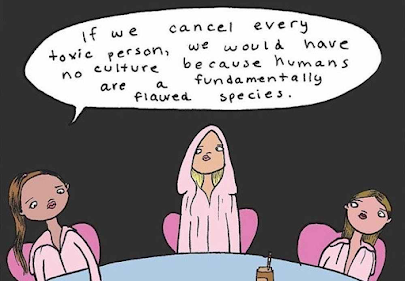Is produsage detracting education?
- Get link
- X
- Other Apps
This week's exploration put three critical topics on the table: the hive mind, the digital natives/digital immigrants theory, and the debate surrounding produsage. Readings, discussions and repeated dives on social media resulted in a personal complex mindmap where innovation and traditions are intertwined in a controversial framework.
On one hand, the affordances of computers and the Internet allow individuals to access readily information presented in various formats and offering multiple perspectives. Online spaces rapidly evolved into produsage environments that encouraged content consumers to bring their own input to the table, enriching the debate at a community scale.
Yet, on the other hand, advances in technologies are frequently pointed as being responsible for shaping a generation of digital natives, unfitted and reluctant to traditional instructional strategies and conventional settings, and self-developing through unverified information and uncontrolled communications channels.
In regard to this observation, the question surrounding the future of education rises. Does produsage detract education? Do so-called digital natives really need to be educated to produsage? Is the hive mind an inevitable curse in our social landscape?
Here are my current reflections:
- first, though Prensky's digital natives concept is appealing as it explains some gaps between youngsters and older individuals, his arguments do not actually serve his theory. In fact, his reflections, which are not supported by any verified data (check the bibliography section of his 2001's paper; oh, wait, where is the damn section?) rather points generational issues, mostly related to languages and the environment people have grown and developed in. It's no surprise that "generation C" is more familiar with technologies and online spaces as it has always been a pat of their life. But in the same way, older people were raised with other elements in their life that would let youngsters helpless. Through our resources this week, we can also see that individuals of all ages do not use sofware and online communication channels evenly depending on their personal, educational and professional purposes. All in all, my view aligns more with the one of researchers and academics highlighting that inter individual differences regarding the digital world rather refer to social economical status, cultural and internal "presdisposition" than age.
- second, while reading more about produsage, I currently understand that produsage environments are spaces where individuals have opportunities to develop and practice 5 capacities (aka the 5C's according to Bruns (2011) allowing them to be creative, collaborative, critical, combinatory and communicative. Overall, I realized that Bruns present produsage environments without necessarily focusing on digital spaces. In that view, I recognize myself evolving in produsage environments through both online and offline experiences, and more importantly, such experiences have a lot to do with my educational experiences. My participation in this course is a perfect illustration, though the instructional strategies employed in this course might be considered as bias example. However, other examples come to my mind, both as a student and as an instructional designer. As an illustration, I see how the 5C's make sense to faculty I support in my institution. I see how easily they integrate them in their curriculum to offer students' several perspectives of the same topic, happily leaving their role of "sages on the stage" for those of guides and "moderators". Relying on prodsage encourage individuals of all age to express their own view and produce their own learning materials, which both enhances the transfer of information and makes people accountable for their own learning and personal growth.
- what about the hive mind? As scary as this may be (see my previous post), I believe the hive mind rising and expanding through produsage in digital communities cannnot be eradicated. To me, it's like wishing to have the yin existing without the yang. But this does not mean that the hive mind should be considered as an inevitable curse.
Which leads me to my current conclusion: in my view, produsage is not bringing useless chaos to the equation. It's also not detracting education. Rather, produsage challenges education, which should actually be an obvious expectation as education is nothing but a changing and unstable world (a lot like Web 2.0 in fact). Nurturing a creative mind and critical thinking thanks to collaboration should be a major goal in the vision of every educational insitution, as such capacities are required in every aspects of our entire life, whether online or offline, whether for personal or professional purposes.
Reference: Bruns, A. (2011). Beyond difference: Reconfiguring education for the user-led age
Links to an external site.. In R. Land & S. Bayne (Eds.), Digital Difference (pp. 131-144). Brill Sense.- Get link
- X
- Other Apps

Comments
Post a Comment